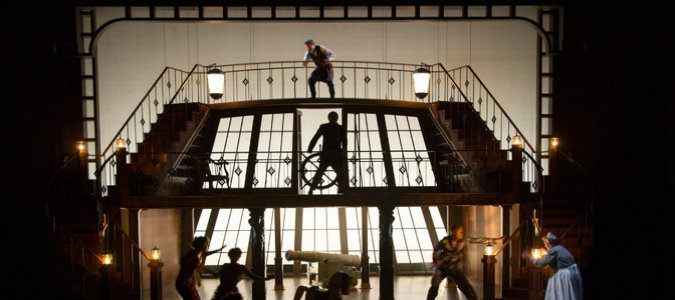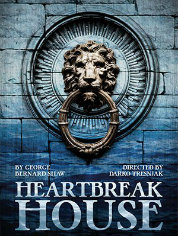

Heartbreak House-Hartford
Opening Night: May 11, 2017
Closing: June 11, 2017
Theater: Hartford Stage
Heartbreak House is Shaw’s comic and caustic masterpiece about the venerable Captain Shotover, his daughters, one liberal, the other conservative, and a household full of bickering guests in a home that’s like a ship – or a country – charting uncertain waters. When the beautiful but impoverished Ellie Dunn arrives, she gets a lesson in romance, politics, and the art of navigation. Shaw’s most ambitious and prophetic achievement, Heartbreak House is set in England in 1914, but its themes and concerns reach across the twentieth century well into our own age. Other works by Shaw include Pygmalion, Mrs. Warren’s Profession, Saint Joan, Major Barbara and Arms and the Man.
BUY TICKETSREAD THE REVIEWS:
May 31, 2017
HARTFORD — Even in ordinary productions of George Bernard Shaw’s “Heartbreak House,” the arrival of Boss Mangan in the middle of the first act changes the temperature of the play completely. Up to that point, Shaw has been busy exposing us to two breeds of ineffectual English elites, circa 1914: the cultured but idle bohemian class, represented by Hesione Hushabye (partly based on Virginia Woolf), and the horsy, empty-headed aristocracy represented by her sister, Lady Utterword. The bohemians have souls, the aristocrats power, and neither knows what to do with them.
Mangan’s entrance introduces a new and loathsome figure to these late Edwardians: the “practical business man.” He is, Shaw writes in his preface, one of those “poor devils” who became rich “by placing their personal interests before those of the country” and thus proved “not only that they were useless for public work, but that in a well-ordered nation they would never have been allowed to control private enterprise.”
READ THE REVIEW


















